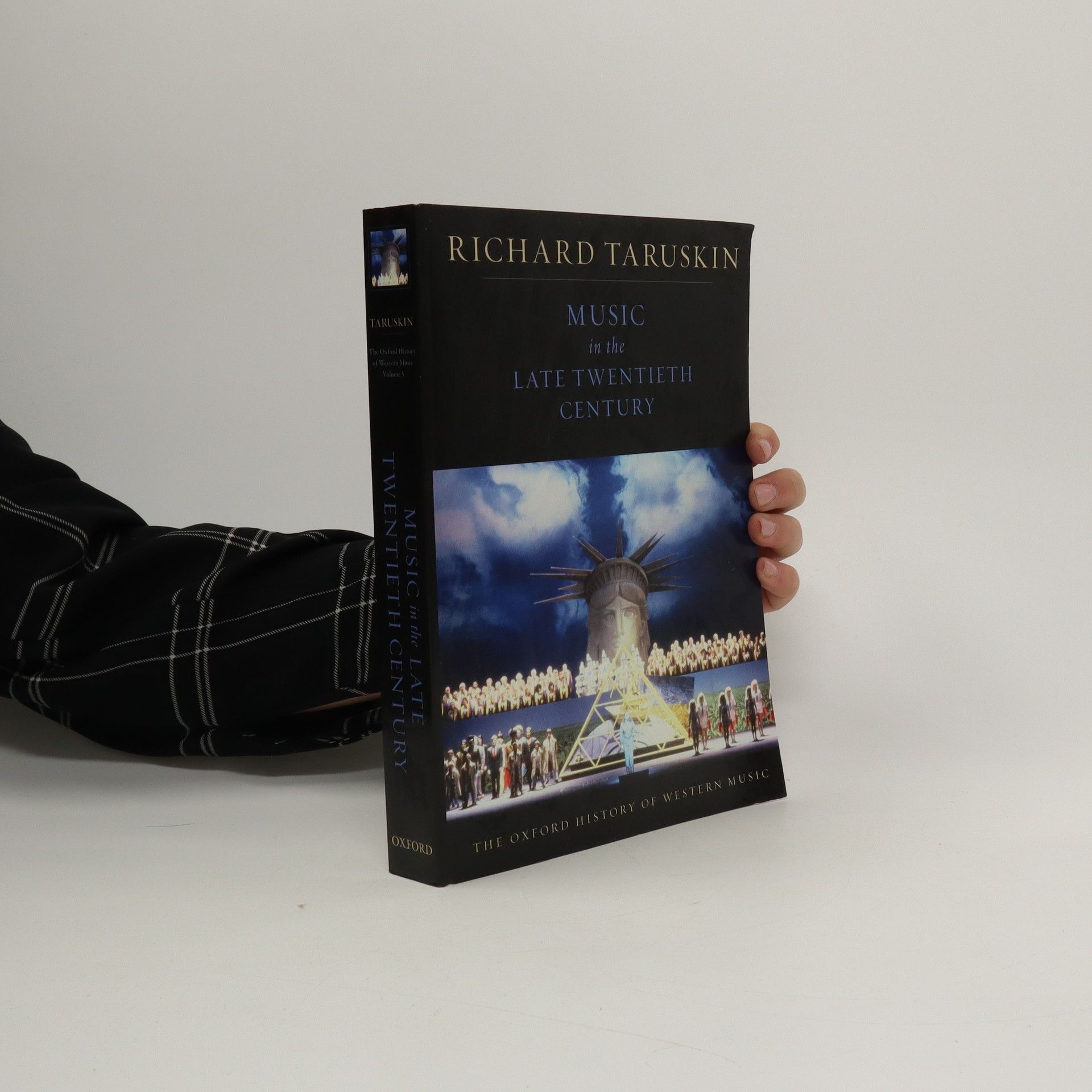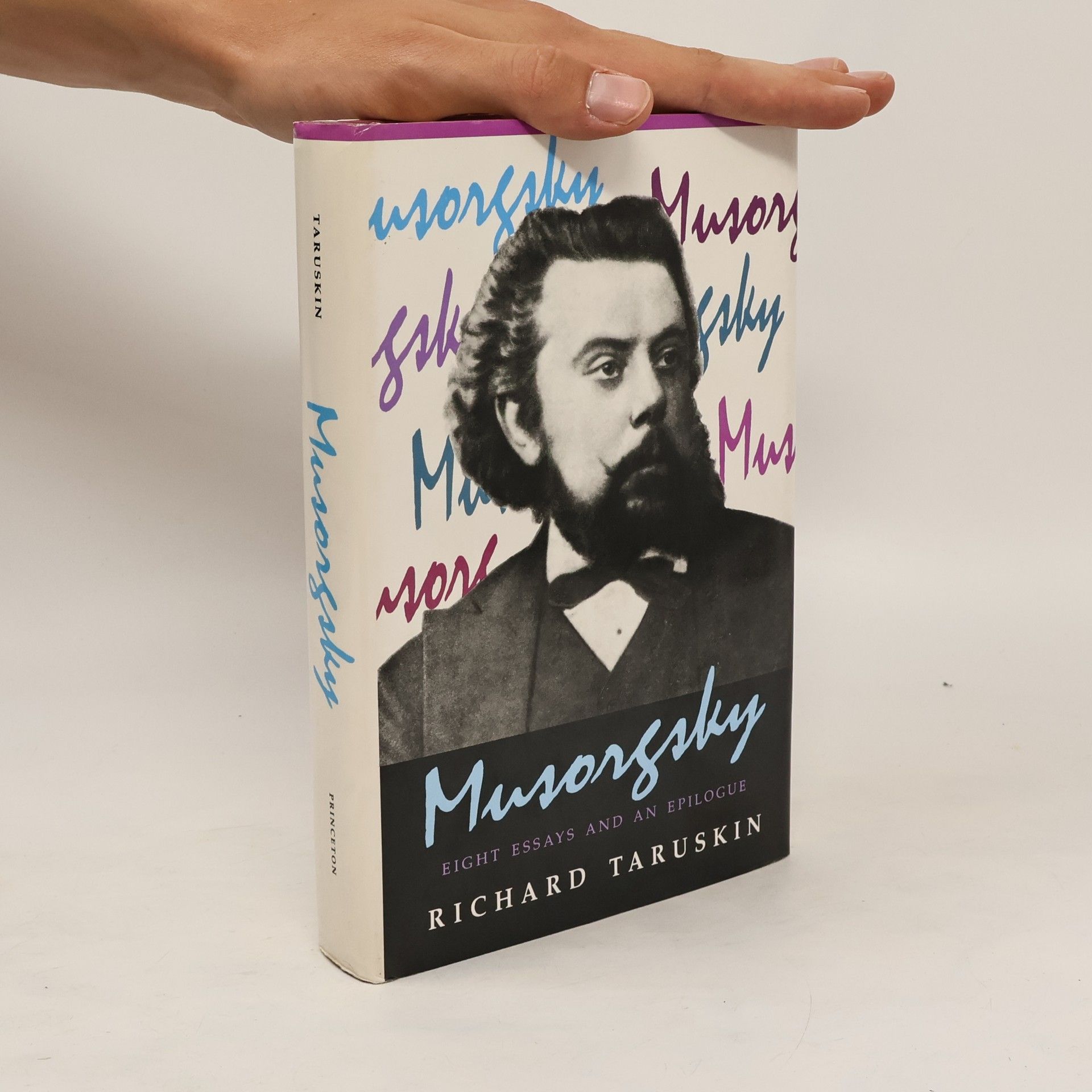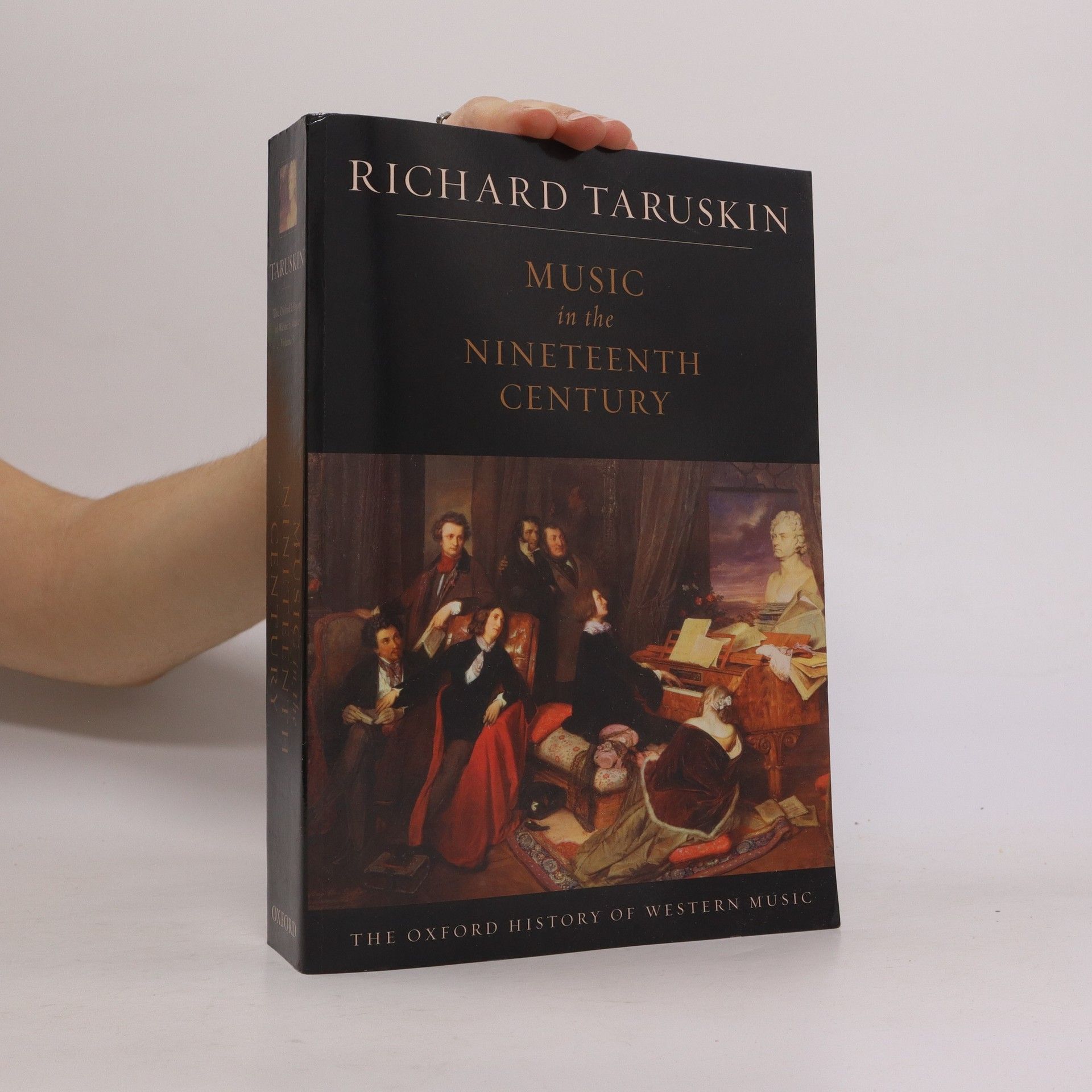Originally published: 2005. New introductions and prefaces added to each volume.
Richard Taruskin Livres






The Oxford History of Western Music: Music in the Seventeenth and Eighteenth Centuries
- 805pages
- 29 heures de lecture
The universally acclaimed and award-winning Oxford History of Western Music is the eminent musicologist Richard Taruskin's provocative, erudite telling of the story of Western music from its earliest days to the present. Each book in this superlative five-volume set illuminates-through a representative sampling of masterworks-the themes, styles, and currents that give shape and direction to a significant period in the history of Western music.Music in the Seventeenth and Eighteenth Centuries, the second volume Richard Taruskin's monumental history, illuminates the explosion of musical creativity that occurred in the seventeenth and eighteenth centuries. Examining a wealth of topics, Taruskin looks at the elegant masques and consort music of Jacobean England, the Italian concerto style of Corelli and Vivaldi, and the progression from Baroque to Rococo to romantic style. Perhaps most important, he offers a fascinating account of the giants of this period: Bach, Handel, Mozart, Haydn, and Beethoven. Laced with brilliant observations, memorable musical analysis, and a panoramic sense of the interactions between history, culture, politics, art, literature, religion, and music, this book will be essential reading for anyone who wishes to understand this rich and diverse period.
Features a collection of essays that considers the contemporary composition and performance, the role of critics and historians in the life of the arts, and the fraught terrain where ethics and aesthetics interact and at times conflict. This title also considers the rights and obligations of artists in the aftermath of the 9/11 terrorist attacks.
The universally acclaimed and award-winning Oxford History of Western Music is the eminent musicologist Richard Taruskin's provocative, erudite telling of the story of Western music from its earliest days to the present. Each book in this superlative five-volume set illuminates-through a representative sampling of masterworks-the themes, styles, and currents that give shape and direction to a significant period in the history of Western music.In Music in the Nineteenth Century, Richard Taruskin offers a panoramic tour of this magnificent century in the history music. Major themes addressed in this book include the romantic transformation of opera, Franz Schubert and the German lied, the rise of virtuosos such as Paganini and Liszt, the twin giants of nineteenth-century opera, Richard Wagner and Giuseppe Verdi, the lyric dramas of Bizet and Puccini, and the revival of the symphony by Brahms. Laced with brilliant observations, memorable musical analysis, and a panoramic sense of the interactions between history, culture, politics, art, literature, religion, and music, this book will be essential reading for anyone who wishes to understand this rich and diverse period.
Musorgsky
Eight Essays and an Epilogue
This collection of critical essays sets the vocal works of Modest Musorgsky in a detailed cultural, political and historial context. The composer's artistic image is revised fundamentally, opposing the century-old dogmas of Musorgsky's first biographer, Vladimir Stasov.
Music in the Late Twentieth Century
- 610pages
- 22 heures de lecture
The Oxford History of Western Music is a magisterial survey of the traditions of Western music by one of the most prominent and provocative musicologists of our time. This text illuminates, through a representative sampling of masterworks, those themes, styles, and currents that give shape and direction to each musical age. Taking a critical perspective, this text sets the details of music, the chronological sweep of figures, works, and musical ideas, within the larger context of world affairs and cultural history. Written by an authoritative, opinionated, and controversial figure in musicology, The Oxford History of Western Music provides a critical aesthetic position with respect to individual works, a context in which each composition may be evaluated and remembered. Taruskin combines an emphasis on structure and form with a discussion of relevant theoretical concepts in each age, to illustrate how the music itself works, and how contemporaries heard and understood it. It also describes how the context of each stylistic period-key cultural, historical, social, economic, and scientific events-influenced and directed compositional choices. Unlike earlier surveys, Taruskin provides greater attention to the full range of 20th century music, including American music as part of the mainstream tradition of western music, women in music, and popular music.
On Russian Music
- 416pages
- 15 heures de lecture
Features thirty-six essays on composers ranging from Bortnyansky in the eighteenth century to Tarnopolsky in the twenty-first, as well as all of the famous names in between.
Cursed Questions
- 462pages
- 17 heures de lecture
Richard Taruskin’s sweeping collection of essays distills a half century of professional experience, demonstrating an unparalleled insider awareness of relevant debates in all areas of music studies, including historiography and criticism, representation and aesthetics, musical and professional politics, and the sociology of taste. Cursed Questions, invoking a famous catchphrase from Russian intellectual history, grapples with questions that are never finally answered but never go away. The writings gathered here form an intellectual biography that showcases the characteristic wit, provocation, and erudition that readers have come to expect from Taruskin, making it an essential volume for anyone interested in music, politics, and the arts.
"A gathering chiefly of talks given either by invitation or at conferences throughout the world over the last quarter century. The topics range widely, but recurrent themes include the place of classical music in contemporary society and culture, the fraught relationship between aesthetics and ethics, and the responsibilities of scholarship in an age of spin"--